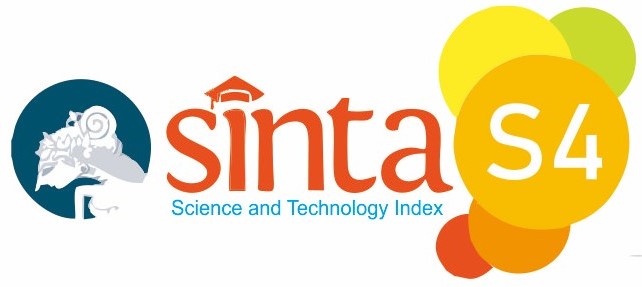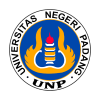IMPLEMENTASI PEMBELAJARAN BERBASIS PROYEK UNTUK MENINGKATKAN HASIL BELAJAR DAN KREATIVITAS PADA MATA PELAJARAN PRODUK KREATIF DAN KEWIRAUSAHAAN
Abstract
Pendidikan dalam era globalisasi menekankan pentingnya siswa memiliki tidak hanya kecakapan akademis, tetapi juga kemampuan berpikir kreatif dan kewirausahaan. Kurikulum di Indonesia telah memperhitungkan kebutuhan ini dengan memasukkan mata pelajaran Produk Kreatif dan Kewirausahaan. Namun, tantangan yang masih dihadapi adalah tingkat keterlibatan siswa yang rendah dalam proses pembelajaran, yang dapat menghambat ekspresi kreatif dan pencapaian belajar mereka. Untuk mengatasi masalah ini, Project-based Learning muncul sebagai pendekatan yang inovatif untuk meningkatkan partisipasi dan pencapaian belajar siswa. Penelitian ini dilaksanakan sebagai tindakan perbaikan untuk menerapkan PjBL dalam mata pelajaran Produk Kreatif dan Kewirausahaan untuk siswa kelas XI di sebuah sekolah kejuruan di Padang Sidempuan. Metode penelitian tindakan kelas digunakan dengan dua siklus untuk meningkatkan tingkat keaktifan siswa serta hasil belajar mereka. Hasil dari kedua siklus menunjukkan peningkatan dalam domain pembelajaran kognitif dan psikomotorik. Siklus 1 menunjukkan kemajuan yang signifikan dalam keterlibatan siswa dan hasil belajar dengan ketuntasan klasikal sebesar 38,46%, meskipun masih di bawah ambang batas yang diinginkan. Siklus 2 menggabungkan perbaikan berdasarkan refleksi Siklus 1, mencapai hasil pembelajaran kognitif dan psikomotorik yang memuaskan diperoleh ketuntasan klasikal sebesar 73,26%. Penelitian ini menyimpulkan bahwa PjBL berdampak positif terhadap keterlibatan siswa dan hasil belajar, sehingga menyarankan penggunaannya secara terus menerus untuk meningkatkan praktik pendidikan di sekolah kejuruan.
References
Ahmad, S. T., Watrianthos, R., Samala, A. D., Muskhir, M., & Dogara, G. (2023). Project-based Learning in Vocational Education: A Bibliometric Approach. International Journal of Modern Education and Computer Science, 15(4), 43–56. https://doi.org/10.5815/ijmecs.2023.04.04
Akram, U., Drabble, J., Cau, G., Hershaw, F., Rajenthran, A., Lowe, M., Trommelen, C., & Ellis, J. G. (2020). Exploratory study on the role of emotion regulation in perceived valence, humour, and beneficial use of depressive internet memes in depression. Scientific Reports, 10(1), 1–8. https://doi.org/10.1038/s41598-020-57953-4
Aprilia, N., Syahril, S., & Azhar, A. (2024). Needs Analysis for the Development of Blended Learning Media Based on PBL to Improve Critical Thinking Skills. Jurnal Paedagogy, 11(1), 186–196. https://doi.org/10.33394/jp.v11i1.9934
Badia, A., & Chumpitaz-Campos, L. (2018). Teachers learn about student learning assessment through a teacher education process. Studies in Educational Evaluation, 58(December 2017), 1–7. https://doi.org/10.1016/j.stueduc.2018.05.004
Deria, A., Fadilah, M., Nisa, I. K., Fortuna, A., Fajriansyah, B., Salsabila, P., Mardiansyah, R., Alika, F. A., Lismita, L., & Junita, U. (2023). Effect of Project Based Learning (PJBL) Learning Model on Creative Thinking Ability of High School Biology Students: A Literature Review. PAKAR Pendidikan, 21(1), 58–64. https://doi.org/10.24036/pakar.v21i1.288
Dwijayani, N. M. (2019). Development of circle learning media to improve student learning outcomes. Journal of Physics: Conference Series, 1321(2), 1–7. https://doi.org/10.1088/1742-6596/1321/2/022099
Eliawati, T., & Harahap, D. I. (2020). Classroom Action Research: Measuring Integration of Character Education in Language Learning. Proceedings of the 4th Annual International Seminar on Transformative Education and Educational Leadership, 384, 260–263. https://doi.org/10.2991/aisteel-19.2019.56
Elliott, J. (2003). Interview with John Elliot, 6 December 2002. Educational Action Research, 11(2), 169–180. https://doi.org/10.1080/09650790300200215
Elvianasti, M., Festiyed, F., Yerimadesi, Y., Kartikawati, E., & Zulherman, Z. (2022). Research Trends in PjBL (Project-Based Learning) at Indonesian Journal of Biology Education. Jurnal Iqra’, 7(2), 105–119.
Febrianti, R., A, Y., Putra, R. P., & Phongdala, P. (2023). Implementation of project-based learning for improve students’ critical thinking skills in creative product and entrepreneurship subjects. Jurnal Pendidikan Teknologi Kejuruan, 6(4), 240–247. https://doi.org/10.24036/jptk.v6i4.34523
Feely, M. (2020). Assemblage analysis: an experimental new-materialist method for analysing narrative data. Qualitative Research, 20(2), 174–193. https://doi.org/10.1177/1468794119830641
Karakose, T., Polat, H., & Papadakis, S. (2021). Examining teachers’ perspectives on school principals’ digital leadership roles and technology capabilities during the covid-19 pandemic. Sustainability (Switzerland), 13(23), 1–20. https://doi.org/10.3390/su132313448
Le, S. K., Hlaing, S. N., & Ya, K. Z. (2022). 21st-century competences and learning that Technical and vocational training. Journal of Engineering Researcher and Lecturer, 1(1), 1–6. https://doi.org/10.58712/jerel.v1i1.4
M. Yusop, S. R., Rasul, M. S., Mohammad Yasin, R., & Hashim, H. U. (2023). Identifying and Validating Vocational Skills Domains and Indicators in Classroom Assessment Practices in TVET. Sustainability, 15(6), 5195. https://doi.org/10.3390/su15065195
Martinez, C. (2022). Developing 21st century teaching skills: A case study of teaching and learning through project-based curriculum. Cogent Education, 9(1), 1–16. https://doi.org/10.1080/2331186X.2021.2024936
Meesuk, P., Sramoon, B., & Wongrugsa, A. (2020). Classroom Action Research-based Instruction: The Sustainable Teacher Professional Development Strategy. Journal of Teacher Education for Sustainability, 22(1), 98–110. https://doi.org/10.2478/jtes-2020-0008
Messikh, D. (2020). A Systematic Review of the Outcomes of Using Action Research in Education. Arab World English Journal, 11(1), 482–488. https://doi.org/10.24093/awej/vol11no1.32
Nadeem, M., Chandra, A., Livirya, A., & Beryozkina, S. (2020). AR-LaBOR: Design and assessment of an augmented reality application for lab orientation. Education Sciences, 10(11), 1–30. https://doi.org/10.3390/educsci10110316
Novalinda, R., Giatman, M., Syahril, Wulansari, R. E., & Tin, C. T. (2023). Constructivist Computer-Based Instruction (CBI) Approach: A CBI Flipped Learning Integrated Problem Based and Case Method (PBL-cflip) in Clinical Refraction Course. International Journal of Online and Biomedical Engineering (IJOE), 19(5), 42–56. https://doi.org/10.3991/ijoe.v19i05.37707
Nuraini, N., Asri, I. H., & Fajri, N. (2023). Development of Project Based Learning with STEAM Approach Model Integrated Science Literacy in Improving Student Learning Outcomes. Jurnal Penelitian Pendidikan IPA, 9(4), 1632–1640. https://doi.org/10.29303/jppipa.v9i4.2987
Pawar, R., Kulkarni, S., & Patil, S. (2020). Project based learning: An innovative approach for integrating 21st century skills. Journal of Engineering Education Transformations, 33(4), 58–63. https://doi.org/10.16920/jeet/2020/v33i4/139423
Qadir, J., & Al-fuqaha, A. (2020). A Student Primer on How to Thrive in Engineering Education during and beyond COVID-19. Education Sciences, 10(9), 1–22. https://doi.org/10.3390/educsci10090236
Ramadhan, T., Irzal, I., Nurdin, H., & Primawati, P. (2023). Hubungan Minat Berwirausaha Dengan Mata Pelajaran Produk Kreatif dan Kewirausahaan di SMK Negeri 1 Lintau Buo. Jurnal Vokasi Mekanika (VoMek), 5(2), 130–134. https://doi.org/10.24036/vomek.v2i4.155
Samala, A. D., Boji, L., Vergara-Rodríguez, D., Klimova, B., & Ranuharja, F. (2023). Exploring the Impact of Gamification on 21st-Century Skills: Insights from DOTA 2. International Journal of Interactive Mobile Technologies (IJIM), 17(18), 33–54. https://doi.org/10.3991/ijim.v17i18.42161
Samala, A. D., Dewi, I. P., & Mursyida, L. (2023). “E-LabSheet Project” 4Cs-Based Supplementary Media for Flexible Learning: Is it Well Implemented? International Journal of Online and Biomedical Engineering (IJOE), 19(1), 4–20. https://doi.org/10.3991/ijoe.v19i01.35523
Sánchez-Ramírez, J. M., Íñigo-Mendoza, V., Marcano, B., & Romero-García, C. (2022). Design and Validation of an Assessment Rubric of Relevant Competencies for Employability. Journal of Technology and Science Education, 12(2), 426–439. https://doi.org/10.3926/jotse.1397
Syahril, Purwantono, Wulansari, R. E., Nabawi, R. A., Safitri, D., & Kiong, T. T. (2022). The Effectiveness of Project-Based Learning On 4Cs Skills of Vocational Students in Higher Education. Journal of Technical Education and Training, 14(3), 29–37. https://doi.org/10.30880/jtet.2022.14.03.003
Syahril, S., Nabawi, R. A., & Nasty, A. Z. (2023). Study on U hull modifications with concave design to improve the tourist ship stability. Journal of Engineering Researcher and Lecturer, 2(2), 63–69. https://doi.org/10.58712/jerel.v2i2.96
Tang, T., Vezzani, V., & Eriksson, V. (2020a). Developing critical thinking, collective creativity skills and problem solving through playful design jams. Thinking Skills and Creativity, 37(May), 100696. https://doi.org/10.1016/j.tsc.2020.100696
Tang, T., Vezzani, V., & Eriksson, V. (2020b). Developing critical thinking, collective creativity skills and problem solving through playful design jams. Thinking Skills and Creativity, 37, 100696. https://doi.org/10.1016/j.tsc.2020.100696
Wu, C. H., Liu, C. Y., & Weng, T. S. (2023). Critical Factors and Trends in NFT Technology Innovations. Sustainability (Switzerland), 15(9), 1–25. https://doi.org/10.3390/su15097573
Submitted
Copyright (c) 2024 Jurnal Vokasi Mekanika

This work is licensed under a Creative Commons Attribution 4.0 International License.








.svg_.png)


